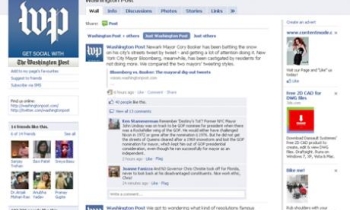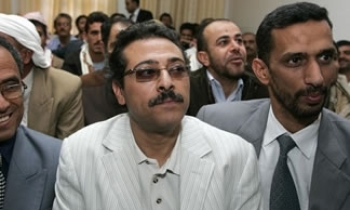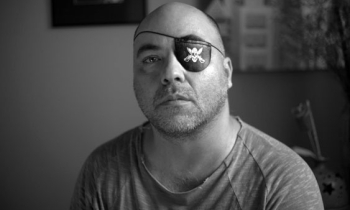Media organisations and activists in Fiji are joining hands to fight a bill currently before the country's parliament for the creation of a Broadcast Licensing Authority (BLA) that will provide the government with a way to control the news media.

According to the bill currently before a parliamentary select committee, the information minister will appoint all six members to the authority, which will have the power to assign and withdraw broadcast licences, a role now played by the Fiji Media Council.
Among other things, the authority will have a say on programming and content, whether they serve the public interest or not. It will also have the power to set up a complaints committee consisting of three members from the authority including the chairperson. The bill proposes a fine of $500,000 on broadcast companies for any breach of their licensing agreement. Breaches could result in licences being revoked.
The Fiji media, which for the most part did not get a copy of the bill until a few days before its submission to parliament, has condemned the government's failure to consult them.
An editorial in the Fiji Sun on August 24 called it a "gagging tool". The newspaper said if the bill was enacted, Fiji would be regarded as "little more than a banana republic, a pariah Mugabe-like state". The editorial said the bill proposed to set up a body of "political appointees" at taxpayers' expense when the self-regulating Fiji Media Council was already doing an efficient job at no cost to the government.
Fiji Media Council chairman Daryl Tarte told Fiji Times Online that while there was a need for a new broadcasting legislation, the council strongly opposed any move to regulate content or to introduce fines or other punishments on the media regarding content. "Self-regulation is the key," he maintained.
"The council already has a voluntary Code of Practice and a Code of Ethics that is used by the media. It is an effective system that uses public embarrassment as the key to self-regulation." Tarte told the committee that members who breached the council's standards were obliged to publish the judgment against them.

"By replacing the existing regulatory body, the Fiji Media Council, by a new entity whose members would all be named by the information ministry, the government is trying to equip itself with a mechanism for controlling the media," Reporters sans Frontières (RSF) said. "The management of broadcast licences should not be entrusted to an offshoot of the government," RSF argued. "We call for a revision of the bill to ensure that the media regulatory body is independent of the government."
In a brief submitted to the government containing recommendations for reform, Article 19 said, "It is well-established under international law that bodies with regulatory powers over the media should be protected against political and commercial interference. The current draft broadcasting bill in Fiji fails to respect that principle and effectively leaves broadcast licensing subject to government control."
In 2004, Article 19 worked with the Asia-Pacific Institute for Broadcasting Development to help draft a broadcasting law for the Fijian government. The current bill is an amended version of the original Article 19 draft, but does not contain many of the provisions that would otherwise guarantee the independence of the regulating body.
The freedom of expression group's law programme director, Toby Mendel contended that while the bill "contains a number of very positive features", the media should be protected against government regulation.
Article 19's main concerns include:
- The minister has sole authority to appoint the members and chief executive officer of the Broadcast Licensing Authority;
- The minister also exercises an unacceptable level of direct control over the licensing process;
- The bill fails to provide for a clear and independent framework for funding the authority.

The consultants who actually reviewed the current legislation had proposed to the information ministry that a completely autonomous Broadcasting Standards Authority be established and that the government not be a part of it. The consultants' report, compiled by John Prescott, a member of the Thomson Foundation and Tony Mandell was completed last year and forwarded to a cabinet subcommittee. This panel then made several changes to the report and turned it into what is currently the content of the Broadcast Bill, the Fiji Times reported.
The chief executive of Fiji Television Limited, Mesake Nawari, told Radio New Zealand International that there would be no freedom of the press and no protection of broadcasting as an important part of the democratic process under the new bill. The chief executive of the state-owned Fiji Broadcasting Corporation, Francis Herman, felt if the bill was implemented their newsroom would be reduced to running stories like the opening of bridges and such matters.
Nawari told the Fiji Times that media companies like Fiji TV were issued a hard copy of a brief presentation by the ministry only a few days before the bill was presented to the cabinet. "It is quite clear that proper consultation with industry players was not done because the bill proposes to control broadcasters and allows the government, through the minister, to interfere with the operations of broadcasters and in particular freedom of the press," he said.
Prime Minister Laisenia Qarase, however, has defended the bill saying its aim was not to control the media, and that a legal framework was necessary for the media. Qarase told Legend FM he would personally ensure the media was free from government interference.
"It is certainly not the government's intention to control the media," he told Legend. "One thing that is clear to me just by talking to members of the media and other people that there is a need for a legal framework within which the media industry works.

"And I think that makes a lot of sense because in every other aspect of life we have legal frameworks within which people who participate in particular fields work under," the prime minister said. "And I can't see why the media should be an exception. But I certainly would not like to think that the intention of the government is to try and control the media. No – far from it. We are not inclined to be thinking that way."
Attorney-General Qoriniasi Bale Friday last described the media council as an ineffective body because complaints lodged with it took long to be addressed or were dealt with in an inadequate fashion. "A typical complaint is the means adopted by media organisations to acknowledge an obvious error," he said.
"The style is to downplay the error by publishing an apology or correction in the most insignificant place or fashion imaginable," Bale said, referring to a recent controversy over a report in the Fiji Sun about seven Indian nationals entered Canada with Fiji passports bearing Fijian names, thereby implying that the department was corrupt.









